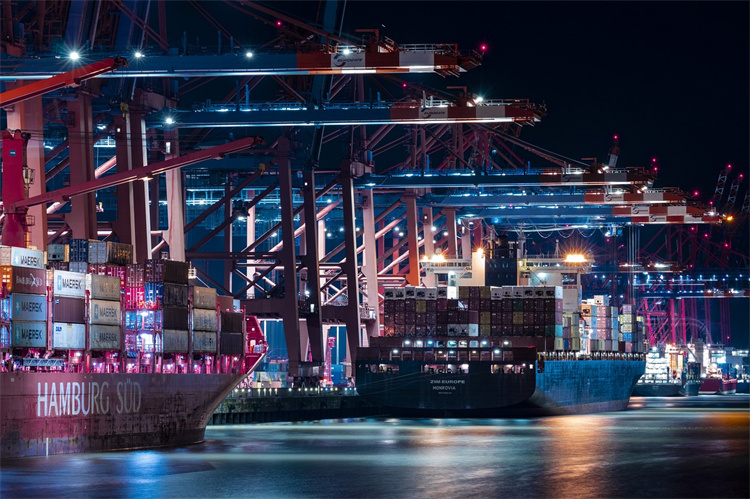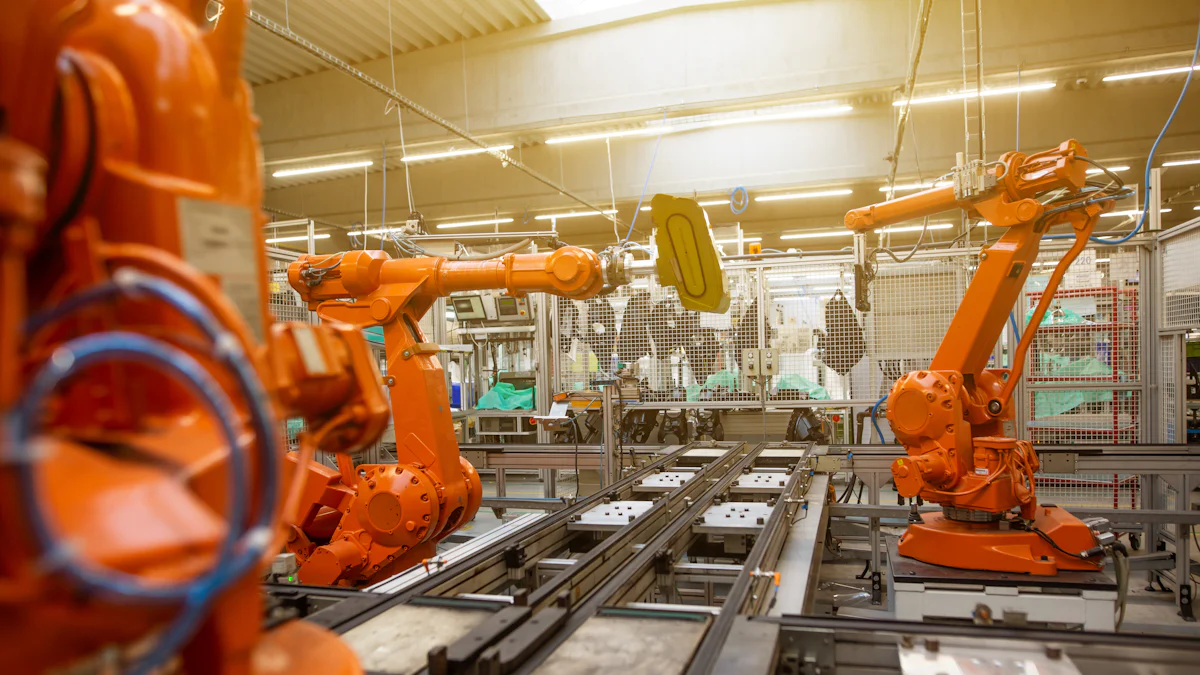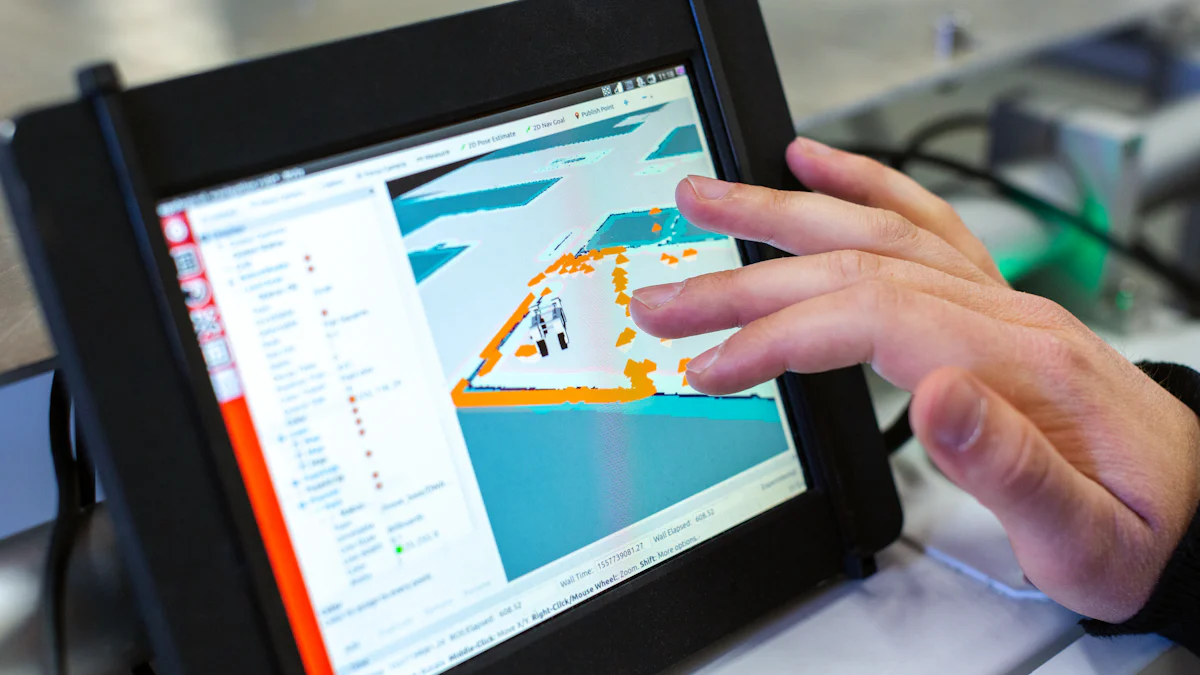Mexico's Manufacturing Boom: The Role of Smart Supply Chains

Mexico's manufacturing sector has experienced significant growth, particularly in industries such as automobiles, electronics, and medical devices. Supply chains play a crucial role in this growth by enhancing efficiency and reducing costs. Smart supply chain advancements have revolutionized traditional supply chains, making them interconnected, intelligent, and self-organizing. These advancements improve responsiveness, efficiency, and resilience, positioning Mexico as a competitive player in the global market.
The Rise of Mexico's Manufacturing Sector

Historical Context
Early Manufacturing Efforts
Mexico's manufacturing sector began with small-scale operations. Local artisans produced goods for regional markets. The introduction of industrialization in the early 20th century marked a significant shift. Factories started producing textiles, food products, and basic consumer goods. Government policies encouraged industrial growth, leading to the establishment of more factories.
NAFTA and Its Impact
The implementation of NAFTA in 1994 transformed Mexico's manufacturing landscape. NAFTA stimulated investment by carmakers, resulting in the opening of assembly plants with state-of-the-art technology. The agreement allowed products manufactured in maquiladoras to be sold in Mexico without prior limits. NAFTA eliminated certain quotas, boosting production. Maquiladoras benefited from waived Mexican import duties and preferential rates on specific products and resources. The close integration through T-MEC (the updated NAFTA) facilitated the transition, with the Mexican automotive industry emerging as a big winner.
Current Trends
Key Industries Driving Growth
Several key industries drive Mexico's manufacturing growth. The automotive sector plays a crucial role, with Mexico becoming a vital partner for U.S. and Canadian automakers. Electronics manufacturing has also seen significant expansion. Companies produce a wide range of electronic components and devices. Medical devices represent another growing sector, with many firms setting up production facilities in Mexico. Home appliances and machinery manufacturing contribute to the overall growth as well.
Foreign Direct Investment
Foreign direct investment (FDI) has fueled Mexico's manufacturing boom. Global companies recognize Mexico's strategic advantages, including its proximity to the United States. Investments flow into various sectors, enhancing production capabilities. The influx of FDI brings advanced technologies and expertise, further boosting efficiency. Mexico's favorable trade agreements attract investors seeking to optimize their supply chains.
Economic and Social Impacts
Job Creation
The manufacturing boom has created numerous job opportunities in Mexico. Factories employ millions of workers across different sectors. The automotive industry alone provides jobs for thousands of individuals. Electronics and medical device manufacturing also generate substantial employment. These jobs offer stable incomes and improve living standards for many families.
Regional Development
Manufacturing growth has spurred regional development in Mexico. Industrial hubs have emerged in various states, attracting businesses and investments. Infrastructure improvements accompany this growth, including better roads, ports, and utilities. Local economies benefit from increased economic activity, leading to improved public services and facilities. Regional development reduces economic disparities and promotes balanced growth across the country.
Smart Supply Chain Advancements

Understanding Smart Supply Chains
Definition and Components
Smart supply chains leverage advanced technologies to enhance efficiency and responsiveness. These supply chains integrate systems such as IoT, AI, and data analytics. The primary components include interconnected devices, real-time data collection, and automated decision-making processes. This integration transforms traditional supply chains into intelligent networks capable of self-optimization.
IoT and Connectivity
The Internet of Things (IoT) plays a crucial role in smart supply chains. IoT devices collect and transmit data across the supply chain. Sensors monitor conditions such as temperature, humidity, and location. This real-time data enables precise tracking and management of goods. Connectivity ensures seamless communication between different parts of the supply chain, enhancing overall efficiency.
Data Analytics and AI
Data analytics and artificial intelligence (AI) drive smart supply chain advancements. Data analytics processes vast amounts of information to identify patterns and trends. AI uses this data to make informed decisions and predictions. Machine learning algorithms continuously improve these processes. This combination enhances accuracy and automation in supply chain operations.
Benefits of Smart Supply Chains
Efficiency and Cost Reduction
Smart supply chains significantly improve efficiency and reduce costs. Automated processes minimize human error and increase speed. Real-time data allows for better resource allocation and inventory management. Companies can reduce waste and optimize production schedules. These improvements lead to substantial cost savings.
Enhanced Decision-Making
Enhanced decision-making is another key benefit of smart supply chains. Real-time data provides valuable insights into supply chain operations. AI-driven analytics offer predictive capabilities, helping companies anticipate demand and manage risks. This data-driven approach enables more accurate and timely decisions, improving overall supply chain performance.
Challenges and Solutions
Implementation Barriers
Implementing smart supply chains presents several challenges. High initial costs and technological complexity can deter companies. Integrating new systems with existing infrastructure requires significant effort. Data security and privacy concerns also pose risks. Companies must address these barriers to fully realize the benefits of smart supply chains.
Overcoming Challenges
Overcoming these challenges involves strategic planning and investment. Companies should start with pilot projects to test new technologies. Collaboration with technology providers can ease the integration process. Investing in cybersecurity measures ensures data protection. Continuous training and development help employees adapt to new systems. These steps facilitate the successful implementation of smart supply chain advancements.
Case Studies and Real-World Applications
Success Stories in Mexico
Automotive Industry
Mexico has become a key hub for automotive manufacturing. The transition of the industry to electromobility preparedness has played a significant role. Many global automakers have established production facilities in Mexico. These facilities produce both traditional and electric vehicles. The strategic location of Mexico allows easy access to the North American market.
The automotive industry in Mexico benefits from Smart Supply Chain Advancements. Real-time data collection and IoT devices enhance production efficiency. Automated systems reduce human error and increase speed. Companies can optimize resource allocation and minimize waste. These advancements lead to substantial cost savings.
Electronics Manufacturing
Electronics manufacturing in Mexico has seen significant growth. Companies produce a wide range of electronic components and devices. The proximity to the United States provides a strategic advantage. Many firms have set up production facilities in Mexico to leverage this benefit.
Smart Supply Chain Advancements play a crucial role in electronics manufacturing. Data analytics and AI drive efficiency and responsiveness. Real-time monitoring ensures precise tracking and management of goods. Automated decision-making processes enhance overall supply chain performance. These advancements improve competitiveness in the global market.
Role of JUSDA in Smart Supply Chain Advancements
Overview of JUSDA's Services
JUSDA Supply Chain Management International Co., Ltd. offers comprehensive end-to-end supply chain solutions. The company integrates raw material procurement, manufacturing, and distribution. JUSDA provides seamless services from factory to end consumer. The company excels in lean supply chain management.
JUSDA leverages advanced technologies such as big data, IoT, and cloud platforms. These technologies support complex and variable customer demands. JUSDA's JusLink platform enables efficient resource utilization. The platform integrates suppliers, manufacturers, service providers, and customers. This integration enhances precise business decision-making.
JUSDA'S Intelligent Supply Chain Solution towards Mexico's Manufacturing
JUSDA's JusLink platform addresses critical pain points in supply chain management. The platform provides end-to-end supply chain visibility. Real-time monitoring of all link nodes ensures risk prevention. Data analysis assists in enterprise management decisions. This improves supply chain efficiency and effectiveness.
JusLink offers a fully integrated system solution. The system covers purchase order (PO) management, transportation management, inventory management, and exception management. This integration ensures seamless operations. The platform enhances overall supply chain performance.
JUSDA's global presence benefits manufacturers in Mexico. The company operates 155 service points worldwide. Over 2.5 million square meters of warehousing support logistics operations. More than 2,000 international service routes enhance connectivity. Strategic partnerships further improve logistics solutions.

SMART JUSDA
Supply Chain Management Solution
Future Outlook
Emerging Technologies
Blockchain
Blockchain technology holds promise for transforming supply chains. Blockchain can provide secure and transparent transactions. This technology ensures data integrity and traceability. Supply chains can benefit from improved security and efficiency. Blockchain can enable faster and more cost-efficient delivery of products. The integration of blockchain with artificial intelligence (AI) can enhance process resilience. AI can analyze data to optimize supply chain operations. Blockchain and AI together can augment product traceability.
Advanced Robotics
Advanced robotics can revolutionize manufacturing processes. Robots can perform repetitive tasks with high precision. This reduces human error and increases production speed. Robotics can handle hazardous tasks, ensuring worker safety. Advanced robots can adapt to changes in production requirements. This flexibility enhances overall efficiency. Robotics can also reduce operational costs. Manufacturers can achieve higher output with fewer resources.
Policy and Regulatory Environment
Government Initiatives
Government initiatives play a crucial role in supporting manufacturing growth. Mexico's government has introduced policies to attract foreign investment. Incentives include tax breaks and simplified regulations. These measures encourage companies to set up production facilities in Mexico. The government also invests in infrastructure development. Improved roads, ports, and utilities support industrial growth. Education and training programs enhance the skills of the workforce. This ensures a steady supply of qualified workers for the manufacturing sector.
Trade Agreements
Trade agreements significantly impact Mexico's manufacturing sector. Agreements like NAFTA and T-MEC facilitate cross-border trade. These agreements eliminate tariffs and quotas on many products. This boosts production and exports. Trade agreements also attract foreign direct investment. Companies seek to optimize their supply chains by leveraging favorable trade terms. Mexico's strategic location and trade agreements make it an attractive destination for manufacturers.
In conclusion, emerging technologies and supportive policies will shape the future of Mexico's manufacturing sector. Blockchain and advanced robotics will drive efficiency and innovation. Government initiatives and trade agreements will continue to attract investment and promote growth. Mexico's manufacturing sector is poised for sustained success in the global market.
Mexico's manufacturing sector has experienced remarkable growth. Key industries such as automotive, electronics, and medical devices have driven this expansion. Smart supply chains play a crucial role in sustaining this growth. These advancements enhance efficiency, reduce costs, and improve responsiveness. Mexico's ability to adapt to changing industry demands and its proximity to the U.S. positions it as a key player in nearshoring strategies. Emerging technologies like blockchain and advanced robotics will further transform the sector. Government initiatives and trade agreements will continue to attract investment. The future of manufacturing in Mexico looks promising.
See Also
Unveiling Big Data's Influence on Supply Chain Enhancement
Efficient Resolutions for High-Tech Manufacturing's Supply Chain Challenges
Addressing Globalized World's Supply Chain Growth Hurdles
Boosting Supply Chains through Cloud-Based Technology Solutions
Transforming Logistics with Innovative Supply Chain Advancements
